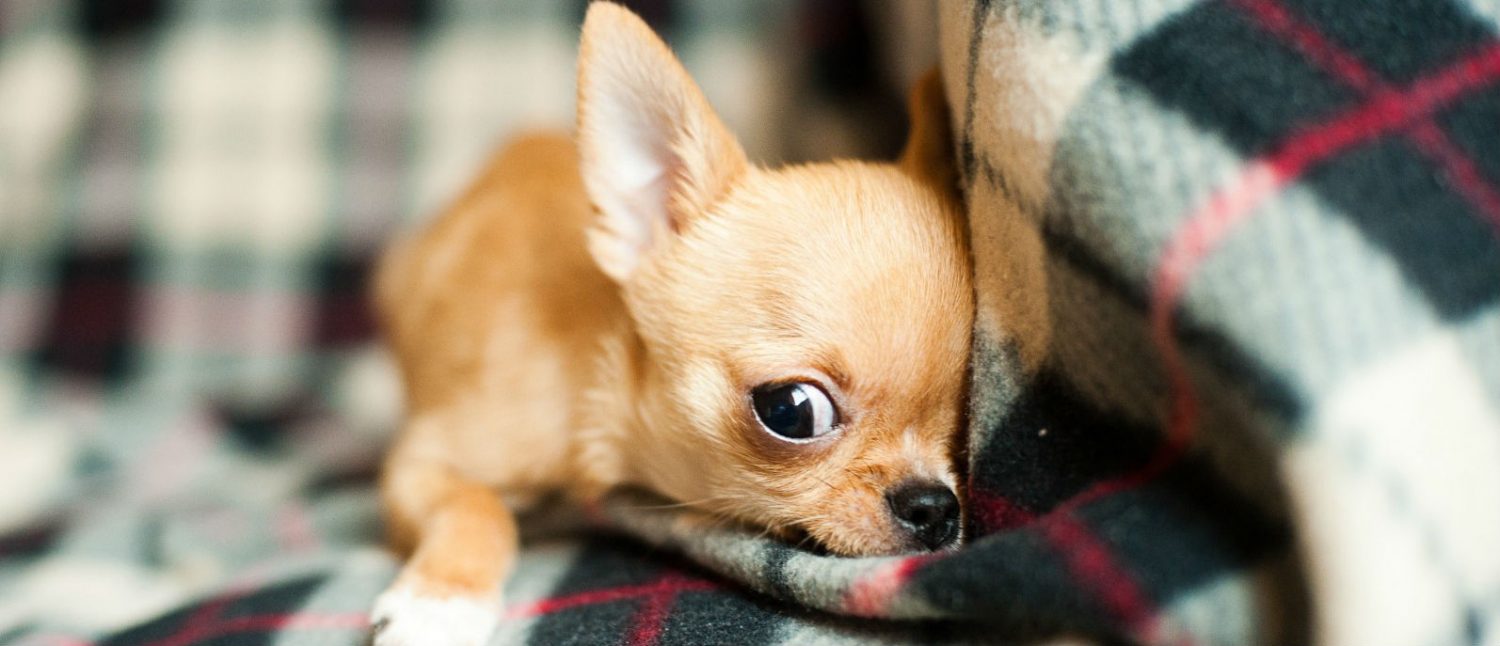How do I know if the bump on my puppy’s stomach is an umbilical hernia and should I have it examined?
Original Question: Does my puppy have an umbilical hernia? I was given a baby Chihuahua the other day and noticed she had a little bump on her stomach. I took no thought of it until today and it seems a little larger when she is walking around than when she lays on her back. She doesn’t show signs of pain when I touch it but I fear it could be bad for her. Should I get it checked out? - Ronald
 Apr 25, 2018
Apr 25, 2018
Hi Ronald,
Thanks for your question. Without a physical examination, I can’t say for sure that your dog has an umbilical hernia. Your description does fit the condition but I would still recommend that you visit your veterinarian for a consultation and physical examination to confirm the diagnosis. The fact that you say it has changed size is also consistent with the diagnosis.
An umbilical hernia is an inherited deformation where the abdominal wall does not fully close during development and a hole in the muscle layer remains. As a result, abdominal contents, such as fat and possibly organs, can push through the hole and appear as a lump under the skin. If you can push the lump or abdominal contents back into the abdomen, then it is considered a ‘reducible hernia’. If the contents cannot be returned, then it is called a ‘non-reducible hernia’. In the case of a non-reducible hernia, there is likely some scar tissue that has formed in the area causing the contents to anchor themselves to surrounding tissues and are therefore stuck.
Most pets will live a normal life with an umbilical hernia but there is a risk that very serious medical conditions could arise. The hernia could widen and a vital organ could pass through the hole and become strangulated, such as a loop of bowel. This is an absolute emergency and could be a fatal condition. For this reason, umbilical hernias are typically corrected with surgical closure when a spay or neuter is performed at a young age.
We have a very thorough video, “General Info About Umbilical Hernias and Treatment for Puppies, Dogs & Cats” about this condition which I encourage you to watch.
To answer your specific question, I would recommend that you discuss this issue with your veterinarian. Consider surgically repairing it now or when the next anaesthetic procedure is performed. It’s not an emergency but it could become one, so I recommend having it repaired at the earliest convenient time.
I should also mention that dogs and cats that are born with hernias have a greater chance of having offspring with them and therefore it is recommended that they are not used in a breeding program.
I hope this helps and thanks for your question.
Dr. Clayton Greenway
Disclaimer: healthcareforpets.com and its team of veterinarians and clinicians do not endorse any products, services, or recommended advice. All advice presented by our veterinarians, clinicians, tools, resources, etc is not meant to replace a regular physical exam and consultation with your primary veterinarian or other clinicians. We always encourage you to seek medical advice from your regular veterinarian.

